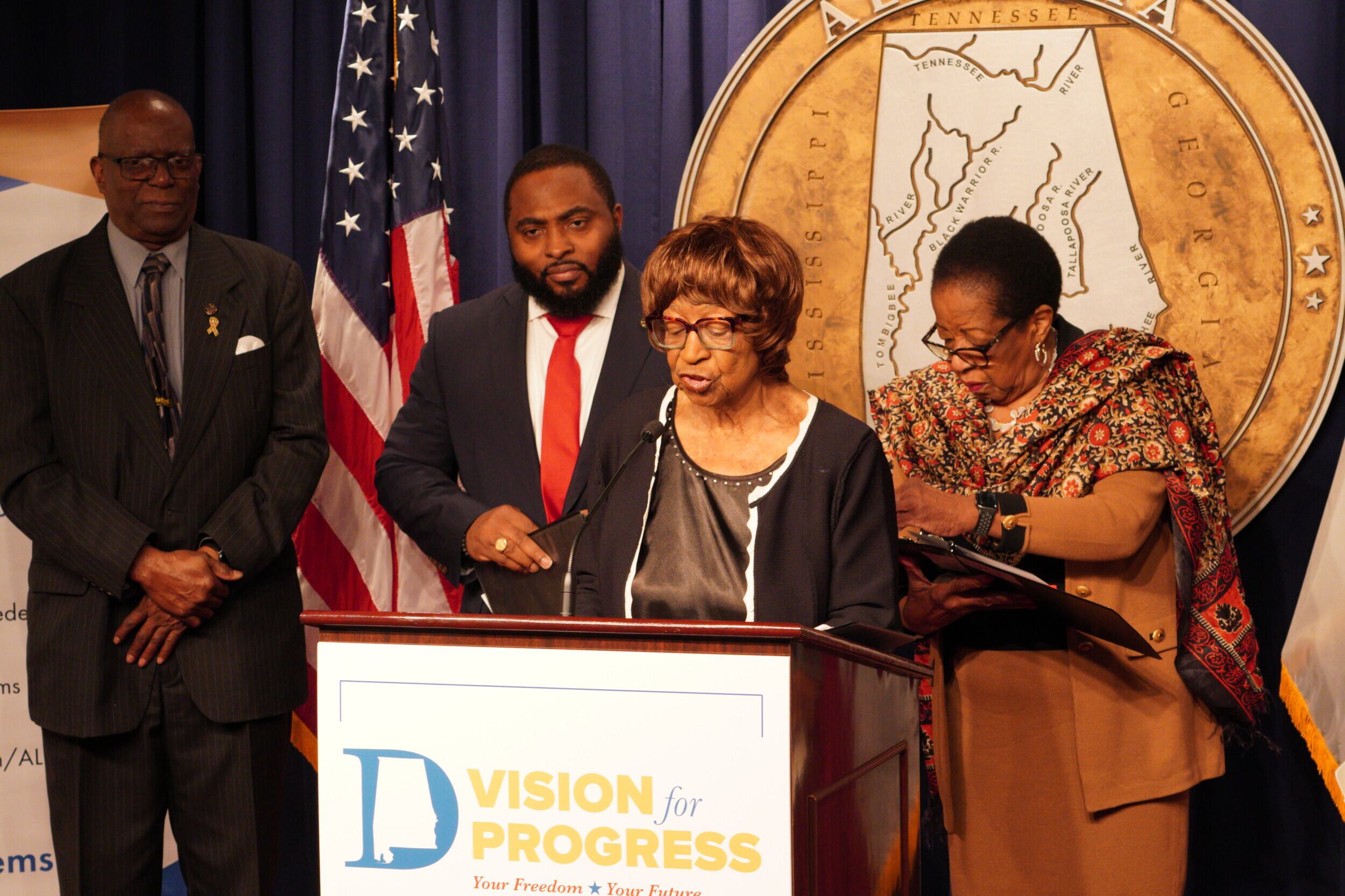MONTGOMERY — On Wednesday, the Alabama House Democratic caucus came out in staunch opposition to Gov. Kay Ivey's proposed school choice legislation that will be debated during the 2024 legislative session.
House and Senate education budget chairs State Rep. Danny Garrett (R-Trussville) and State Sen. Arthur Orr (R-Decatur) filed education savings account legislation called the Creating Hope and Opportunity for Our Students' Education (CHOOSE) Act.
The CHOOSE Act program would provide up to $7,000 per child enrolled at an accredited, participating private or public school through an education savings account funded by a new refundable income tax credit. Homeschooling families would receive up to $2,000 per homeschooler, with a $4,000 cap for families with more than one homeschooler, for eligible educational expenses. Families will begin participating in the program during the 2025-2026 academic year if the legislation is passed during the 2024 session.
At a press conference on Wednesday, members of the House Democratic Caucus spoke in opposition to the CHOOSE Act. Present Members were State Reps. Barbara Boyd (D-Anniston), Laura Hall (D-Huntsville), Kenyatté Hassell (D-Montgomery), Sam Jones (D-Mobile) and Thomas Jackson (D-Thomasville).
Boyd, a 30-year veteran in the House of Representatives and former teacher, pointed to the recent stagnation in further grocery tax cuts due to the lack of growth in the state's Education Trust Fund (ETF).
SEE: No second grocery tax cut for Alabama shoppers in 2024
"As a legislator, I fought for decades to increase our investment in public education and to ensure fairness in educational funding over the years," Boyd said. "I've also strongly supported the removal of the grocery tax to help get rid of food insecurity throughout the state. I bring this up because, although we were able to reduce the grocery tax by one percent last year, we will not be able to do it again this year due to the lack of growth in the [ETF] Budget."
"This is an important point because school vouchers that have been proposed by the governor will also come out of the [ETF], and that would make further reductions to the grocery tax nearly impossible. So that's why this school voucher plan is bad for Alabama. Not only would it siphon public taxpayer dollars to for-profit private schools, it would also prevent further efforts to reduce the grocery tax."
Additionally, Boyd said the potential loss of $100 million to the ETF would be "risky" for the state, especially since she is unconvinced that states that have implemented similar programs have had any notable success.
Boyd echoed similar sentiments to those of State Rep. Barbara Drummond (D-Mobile), who told 1819 that the state should give time and allow its previous literacy and numeracy incentives a chance to take root.
"In Alabama, we just simply can't afford to go down this unproven and financially dangerous path, particularly after our significant investments in the Literacy and the Numeracy Act," Boyd continued.
The House is mainly focused on tackling the comprehensive gambling legislation this second week of the session.
To connect with the story's author or comment, email craig.monger@1819news.com.
Don't miss out! Subscribe to our newsletter and get our top stories every weekday morning.










